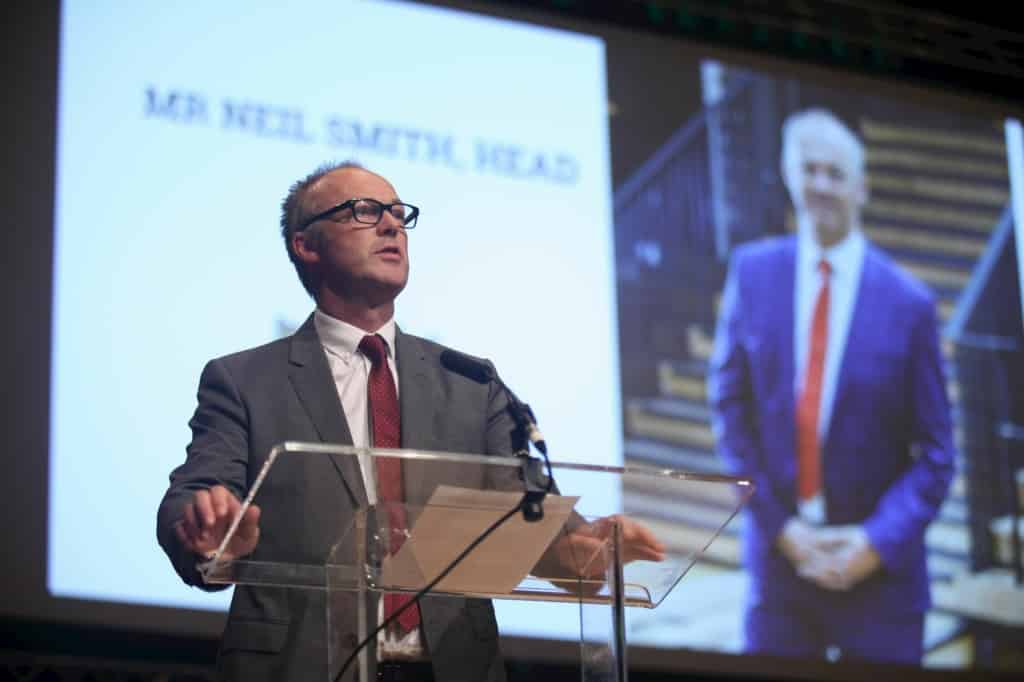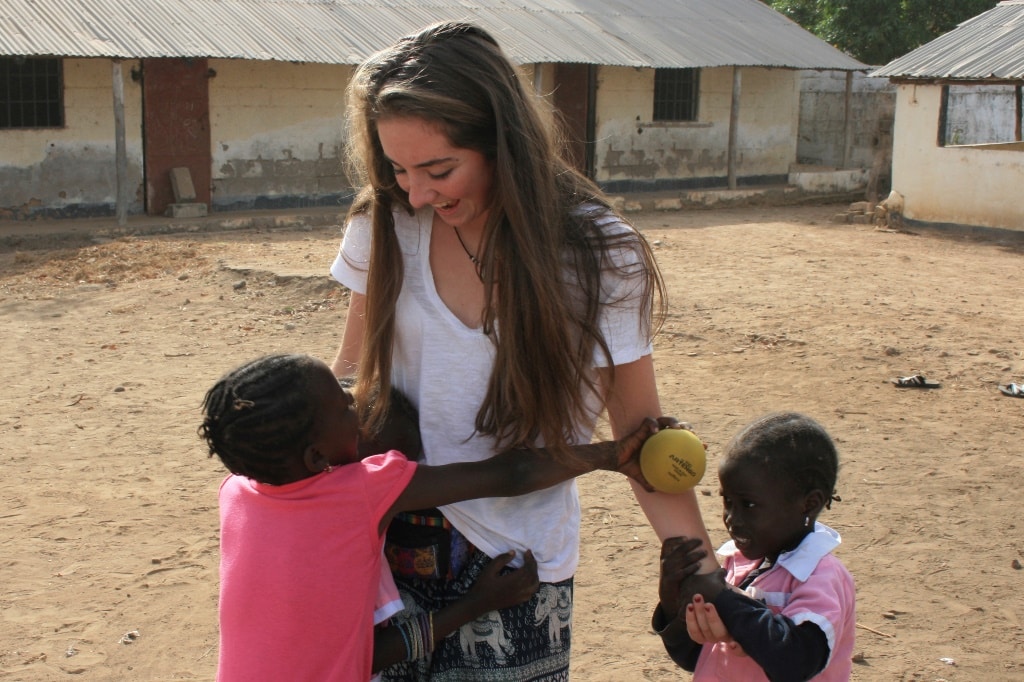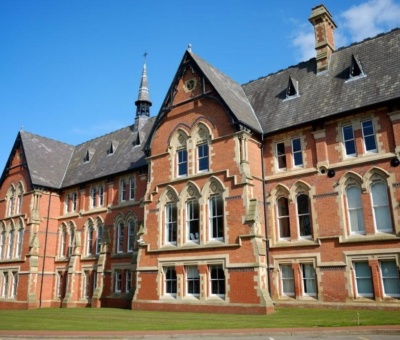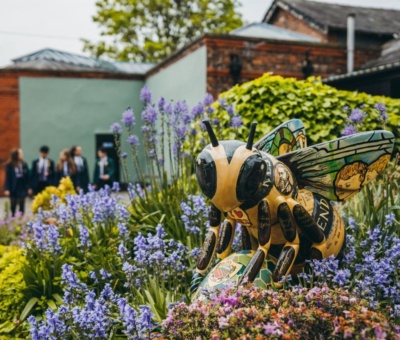What it means to be a Waconian
Standing at the podium preparing to deliver my inaugural speech at the School’s Annual Celebration Evening I was able to reflect on the great sense of privilege I felt to be the Head of a school which is so explicit in wishing to celebrate not just its achievements, commitment, and character, but also a school which is so aware of its purpose, its traditions and its culture to celebrate both the foundation of the school and the values which were at the heart of its foundation.

When Ezekiel Browne and a small group of merchants met with counterparts in London to discuss ways that they could provide for the orphans of warehousemen and clerks, they were driven by multiple, and perhaps contradictory motives. To a degree, at least some element of self-interest would have played a part: after all, with child labour still legal, but with the introduction of ever more complicated technology in factories employers required better educated employees to operate this technology. Furthermore, as the population of Manchester had tripled in number in the first half of the nineteenth century, with ever-increasing numbers of people living in urban areas, there would be both a ready pool of potential labour, if educated appropriately, but also the very real risk of social unrest if large numbers of orphans and poor children were left to roam the streets of their own accord. However, there was a very real commitment to ensuring that the children of deceased workers should not be plunged into the abyss of the dreaded workhouse and instead should be educated to perform at the very least, the types of jobs that the clerks themselves would have done.
However, if the exact motives behind the School’s foundation remain oblique, we can learn a significant amount about the real values at the heart of the original Manchester warehousemen and clerks orphans school by considering for a moment who the school was for, and how it was run. Of course, the name given to the school at its foundation provides a pretty big clue who the school was originally intended for, but this title provides only part of the picture; for at a time when education for girls was mostly restricted to domestic-related activities, and developing basic levels of literacy, the school was clear in its intent to educate both girls and boys.
We can also glean much about the underlying values of the school by looking at the records of former pupils. Perhaps the best piece of evidence for understanding what a late nineteenth century education would have been lie at CHS is the diary of Ellis Guest, who boarded in the 1870s and whose diary was uncovered during a programme of building work at the school converting the old boarding houses in new state of the art classrooms. In his diary, Ellis comments on the use of corporal punishment at the school as something which was rarely used, and certainly in comparison to other schools, suggesting at least some degree of enlightenment in its approach to pupil discipline.
The curriculum followed at the school in the mid-nineteenth century is also instructive. Within a couple of years of the school opening, boys and girls were given access to subjects which at the time were regarded as revolutionary: subjects such as Mathematics, History, French and German. Pupils currently at the School may not think that the study of History, Maths, and modern languages is either that revolutionary, and those whose academic interest lie elsewhere may not have much reason to be grateful for the progressive ideas of the School’s early leaders. However, it’s important to bear in mind that this was only a few years after Leeds Grammar School was banned by Lord Eldon from deviating from the traditional classical curriculum which still dominated in many schools at the time. A study of the Classics is, of course, an essential feature of a modern curriculum and a modern education, but the point that needs to be made here is that the introduction of these ‘modern’ subjects was not a result of some fad or trend, but because of the school’s strong belief in the benefits of providing a broader curriculum than that offered in other schools.
So why dwell on all of this history? The key point is to provide some context to all of what was celebrated during the Annual Celebration, to help understand who we are as a school and why we celebrate the many and diverse achievements of the pupils. A prominent former businessman, entrepreneur and TV presenter with close family links to the school once stated hubristically that this is Manchester: we do things differently here: it wouldn’t be stretching his point too far to apply his statement to CHS. We do do things differently to other schools. Not for the sake of novelty or being different for the sake of it. We do things differently because of the strong set of values which have under-pinned not just what we do, but also why we do things. Values which go back to the very foundation of the school.
I would like to think that an institution so committed to the preservation and expression of a strong set of education values is, today, something to be cherished. Whether on the international stage being confronted by post-modernism writ-large, with facts and events being distorted to whatever agenda is being pursued, or the seeming reduction of a modern education to progress points and attainment targets, and relations between schools defined more by competition than by partnership, collaboration, and mutual support, we are at risk of losing sight of what an education should be and what an education is actually for.

Of course, I would hope that all of the pupils at CHS, and I hope all of the parents too, will be aware of our Waconian values, which all of us in the school community adhere and, hopefully constantly aspire to. These provide the framework within which we construct our curriculums, pastoral care, our work with others and the wide array of opportunities outside the classroom which are so essential to the education which we provide.
But I wonder if any of the pupils have stopped to think about where these values actually come from? Have they ever wondered whether they go far enough, or whether there are other important values which we, as a school, should be emphasizing? For me, as someone who has a link with the school going back to the mid-1990s and who has been fortunate enough to have been part of the CHS community as both teacher and parent before my appointment as Head, I have always been aware of how intrinsic Integrity, Endeavour, Resilience, Compassion and Contribution have been to the school even before they were first put forward as the official Waconian values. The values themselves, though, stem from a broader fundamental belief in the merits of a liberal education, the sort of education which was established in the school from the start of its history, an education designed not just to provide fodder for the mills or training young women for a life of domesticity, but an education designed to develop a human being to be free and fulfil their full potential. Developing an understanding of the scientific, historical, linguistic and natural world, which were deemed to be as important as that of the religious or classical worlds.

Fast forward to September 2018, and I would still make a strong case for the importance of basing our school values upon the principles of a liberal education. Wishing to provide a working definition of this term, I would describe a liberal education as an approach to learning that empowers individuals and prepares them to deal with complexity, diversity, and change. By providing a broader knowledge of the wider world a liberal education helps pupils develop a sense of social responsibility, as well as strong intellectual and practical skills, and an ability to apply both knowledge and skills.
This is something which, I hope , is evident in all that Cheadle Hulme School aspires to for all of its pupils. We recognise that not only are these skills and attributes highly desirable for our pupils, but that they are not inherent in individuals: they have to be taught, they have to be developed and they have to be learnt. At the school we do this in two ways: by articulating and emphasising the importance of following the Waconian values of integrity, Endeavour, Resilience, Compassion and Contribution and by providing a broad and inclusive education, with an explicit focus on the ‘3As’: the academic, altruistic and active, or, in other words, developing the mind, the body and the soul.
There is, of course, a strong economic argument for providing such an education: the workplace has always required employees possessing the ability to solve problems, process and apply new information and demonstrate the resilience to cope with challenge and change. We have high expectations of our pupils, and those expectations apply also to their outcomes and careers once they have left the School; we need, therefore, to ensure that we are providing the education necessary for them to be successful in the world of work.
However, my belief in the value of a liberal education stems more from a desire to enable young people to act as intelligent, cooperative, engaged, self-aware members of society. We need to provide our pupils with the ability and confidence to participate fully in a civil, democratic society, ensuring that that they are able to think critically and make informed choices, whilst also developing the empathy required to listen and understand different views. This why we provide a strong emphasis on offering a challenging academic programme, a positive and proactive approach to pastoral care which attempts not only to support young people when things aren’t going to plan but also which helps to create a culture and environment in which pupils can learn how to relate to others and learn how to manage themselves.
One area which also plays a hugely important role in the CHS experience is the work which the School does to support the wider community. Again, this is an area which demonstrates continuity with the school’s foundation and history, and it is absolutely right that we should be celebrate the altruistic work of the pupils at a school whose very creation came out of a desire to help the most needy in society.

At present, the school provides many opportunities for its pupils to play their part in the community, whether it be listening to primary school pupils read, holding community days for local pensioners, numerous cake sales (it’s always a cake sale….) and even supporting a school in the Gambia. This is something which I am extremely keen to see develop during the coming years, as we look to build closer relationships with schools at both primary and secondary level. These partnerships are invaluable in supporting communities who do not have access to the resources which we are so fortunate to have at CHS, whilst they also provide important life experiences for our own pupils, helping them to develop their own understanding of their place in the local and wider community, and the role that they can play in supporting others.
Related to this, it must be a goal of the school to maintain and expand its commitment to widening social access to CHS through its bursarial and financial assistance schemes. As you will, hopefully, be aware, we are part way through our 150th anniversary bursary appeal, to raise £5m by 2020. This appeal aims to create a fund which will support many more children through their CHS education, and thereby provide as potentially life-changing experience to those who would not otherwise be able to access the education that this school offers.
Membership of the CHS community is a privilege. However, with privilege comes a heavy responsibility, and at the conclusion of my address at the Celebration I posed two questions to the pupils, which related to this responsibility which we all have:
Firstly, have they made the most of the opportunities which you have been given at the school, and how will they know?
By this, I do not just mean how many clubs and societies have they participated in, how many school trips they have been on, but how far do they feel that they have made the most of the teaching, the curriculum, the culture, the challenges to set them on their way to fulfilling their potential?
The second question harks back to the altruistic principles at the heart of the school’s foundation, and is a very simple one:
How will they use their experience of studying here to help others?
I sincerely hope that they give pause for thought about it really means to be a Waconian and, and what it is to follow in the footsteps of Ellis Guest and those pupils who were first elected to this great school in 1855.


